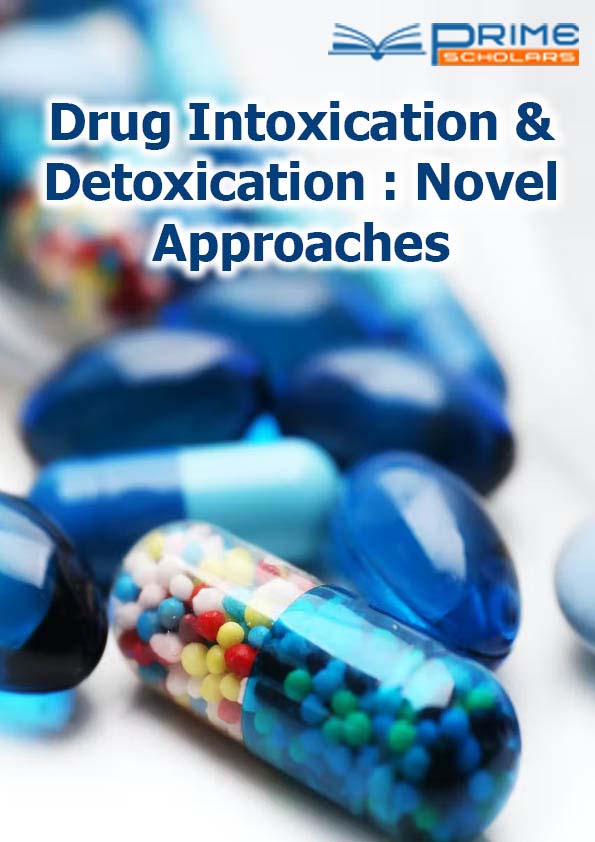Perspective - (2025) Volume 6, Issue 1
The Menace of Methamphetamine: A Call for Comprehensive Action
Mia Harper*
1Department of Narcotics, University of Berlin, Germany
*Correspondence:
Mia Harper, Department of Narcotics, University of Berlin,
Germany,
Email:
Received: 13-Dec-2023, Manuscript No. DIDNA-24-18590;
Editor assigned: 16-Dec-2023, Pre QC No. DIDNA-24-18590 (PQ);
Reviewed: 02-Jan-2024, QC No. DIDNA-24-18590;
Revised: 05-Feb-2025, Manuscript No. DIDNA-24-18590 (R);
Published:
13-Feb-2025, DOI: 10.36648/DIDNA.6.1.48
Introduction
Methamphetamine, a highly potent and addictive stimulant, has emerged as a pervasive and destructive force in societies worldwide. The rise of methamphetamine use and its associated societal impacts demand a re-evaluation of our approaches to prevention, treatment and policy. In this opinion article, we delve into the multifaceted challenges posed by methamphetamine, emphasizing the need for a comprehensive and compassionate response to this formidable public health concern.
Description
Methamphetamine, commonly known as meth, crystal, or ice, has surged in popularity due to its powerful stimulant effects. The consequences of methamphetamine use extend far beyond the individual user, permeating communities with devastating social, economic, and health ramifications. The escalating crisis demands urgent attention and an unwavering commitment to tackling its root causes. The highly addictive nature of methamphetamine amplifies the challenges associated with combating its use. The drug's ability to hijack the brain's reward system and induce intense euphoria makes breaking free from its grip an arduous journey for those caught in the cycle of addiction. Traditional approaches centred solely on punitive measures often fail to address the underlying factors that contribute to substance abuse. Addressing the methamphetamine crisis requires a departure from punitive measures and a shift toward comprehensive and compassionate treatment strategies. Treatment programs must recognize the unique challenges posed by methamphetamine addiction, including the intense cravings, cognitive deficits, and potential for relapse. A combination of behavioural therapies, counselling and support for co-occurring mental health issues is essential in empowering individuals on the path to recovery.
Prevention and early intervention are critical components of any effective strategy to combat methamphetamine use. Community based initiatives that raise awareness, provide education, and foster dialogue play a pivotal role in prevention efforts. Collaboration between healthcare professionals, educators, law enforcement, and community organizations is essential in creating a united front against the proliferation of methamphetamine. Harm reduction strategies, including needle exchange programs and outreach services, are integral to mitigating the health risks associated with methamphetamine use. These initiatives not only promote safer practices but also serve as bridges to connect individuals with treatment options and support services. By meeting people where they are and offering non-judgmental assistance, harm reduction programs contribute to a more humane and effective approach to addressing the complexities of addiction. Policy reforms are imperative in aligning legal frameworks with evidence-based approaches to methamphetamine use. Shifting the focus from punitive measures to treatment-oriented solutions requires a revaluation of drug sentencing laws and the allocation of resources toward prevention and rehabilitation. Policymakers must work in tandem with healthcare professionals and addiction specialists to craft policies that prioritize public health over punitive measures.
Education is a potent weapon in the fight against methamphetamine. Schools, communities and healthcare providers must collaborate to deliver targeted prevention programs that equip individuals with the knowledge and skills to make informed decisions. Dispelling myths surrounding methamphetamine, fostering resilience against peer pressure and promoting mental health literacy are crucial components of comprehensive education initiatives.
Conclusion
The menace of methamphetamine demands a paradigm shift in our approach to prevention, treatment, and policy. By embracing a comprehensive strategy that combines evidencebased treatment, harm reduction, community outreach, policy reforms and education, we can begin to dismantle the destructive grip of methamphetamine on individuals and communities. The path forward requires compassion, collaboration and an unwavering commitment to addressing the root causes of addiction. Through these concerted efforts, we can forge a more hopeful and resilient future in the face of this formidable public health challenge.
Citation: Harper M (2025) The Menace of Methamphetamine: A Call for Comprehensive Action. Drug Intox Detox: Novel
Approaches. 6:48.
Copyright: © 2025 Harper M. This is an open-access article distributed under the terms of the Creative Commons Attribution
License, which permits unrestricted use, distribution, and reproduction in any medium, provided the original author and source
are credited.
